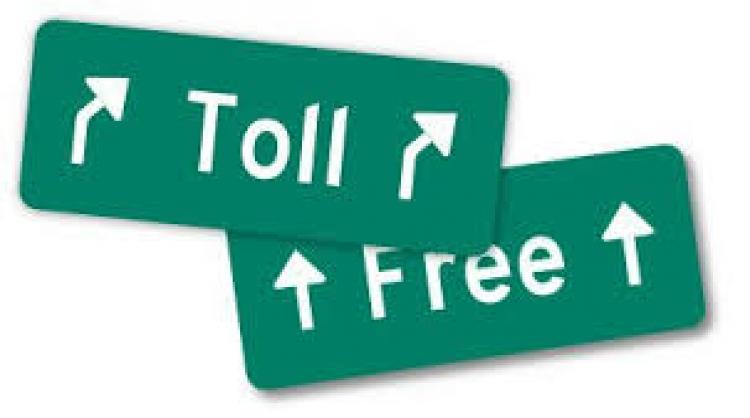FCC Finds Core Tariff Violated its 8YY Rules
October 15, 2021 | by Andrew Regitsky

In 2020, the FCC decided that 8YY abuse was out of control. After a contentious proceeding, it adopted rules transitioning certain originating 8YY access charges to bill-and-keep and capping 8YY database query charges at $0.0002. It also prohibited carriers from charging for more than one 8YY database query per call. Nevertheless, some carriers did not appear to get the message. For example, there is the case of Core Communications.
Core Communications (Core) is a competitive local exchange carrier (CLEC) that serves as an intermediate carrier, primarily for 8YY calls. Core does not originate any calls, instead, it purchases all the 8YY traffic that traverses its network from other (originating) carriers.
On April 22, 2021, Core filed proposed revisions to its Interstate Tariff No 3, in which it proposed to change the terms and conditions governing “good faith” billing disputes and late payment fees. It also proposed language stating that if it “discontinues service, it will provide, in connection with access traffic associated with the discontinued Customer, only those minimal functions necessary to identify the Customer as being the relevant carrier (i.e., 8YY database queries).” Core also added sections regarding the blocking of “fraudulent or otherwise illegal traffic,” as well as disputes about such traffic, and proposed changes to allow it to charge an IXC for an 8YY database query “even if the underlying call is not completed.”
AT&T and Verizon intervened, requested the FCC to reject, or at a minimum, investigate the tariff filing, contending that Core was attempting to charge for “unnecessary work” and to “extract profit at IXCs’ expense” and the tariff revisions ultimately will “permit Core to profit from 8YY arbitrage schemes and then allow Core to avoid any accountability for doing so.”
On May 6, 2021, the FCC suspended the tariff revisions for one day and launched an investigation. It followed up on June 23, 2021, when it released an Order Designating Issues for Investigation in Docket 21-191. The Commission’s goal would be to determine whether the tariff revisions concerning billing disputes, obligations regarding purportedly fraudulent traffic, obligations of customers cut off from service by Core, late payment fees, and 8YY database queries were consistent with the Act, the 8YY Access Charge Reform Order, and its rules.
The investigation commenced with Core filing a Direct Case supporting its tariff changes on July 14, 2021. It argued that its revisions were designed to combat what it called as “egregious and unlawful self-help and non-payment by Verizon and AT&T for legitimate 8YY traffic that Core delivers to those IXCs.”
AT&T and Verizon filed oppositions to the Direct Case on July 28, 2021. AT&T argued that Core’s tariff revisions were unjust and unreasonable and violated the 8YY Access Charge Reform and Call Blocking orders. Verizon claimed that the Commission should reject Core’s tariff revisions because Core failed to adequately respond to the Designation Order, violates Commission rules, and attempts to incorporate unlawful tariff revisions that would allow it to profit from toll free arbitrage schemes.
On October 9, 2021, in Docket 21-191, the Commission released an Order and concluded that many of the proposed tariff changes are unlawful, must be changed, and Core will have to refund any access charge revenues unlawfully obtained.
We find that Core has not met its burden of showing that this tariff revision is just and reasonable. We also conclude that Core’s Revised Tariff section[s] [are] contrary to the policies adopted in the 8YY Access Charge Reform Order. Accordingly, we find that the proposed revisions...are unjust and unreasonable and we order Core to remove the language...in Transmittal No. 17 filed on April 22, 2021.
Given the complexities associated with the implementation of the findings made in this Order, we direct the Wireline Competition Bureau to ensure that the Commission’s findings are properly reflected in Core’s new revised tariff. We further direct the Wireline Competition Bureau to determine any refunds that may be required once the newly revised tariff is effective. Docket 21-191, Order released October 9, 2021, at paras. 68-70).
The Commission explained why Core’s various attempts to defend of its tariff changes failed:
Core did not provide any legal justification for its position that the self-help in question, in the form of withholding payment, is categorically unlawful.
Throughout its Direct Case, Core attempted to justify its Revised Tariff as a means of protecting IXCs’ 8YY customers at large and advancing the public interest. However, Core’s customer is the IXC, not the IXC’s 8YY customer. The purpose of a tariff is to provide the rates, terms, and conditions that govern a carrier’s (Core’s) relationship with its customers (IXCs), not to impose the carrier’s will on its customer’s end-user customer. If an IXC’s 8YY customer, which Core allegedly seeks to protect through its Revised Tariff, believes that it has been inappropriately charged, the Act and our rules—not Core’s Revised Tariff—are the means of protecting it against unlawful charges.
Core argued that certain of its tariff revisions should be deemed lawful because they duplicate language from other carriers’ tariffs. However, section 204 of the Act, states that the scope of a tariff investigation is limited to “the lawfulness” of the “revised charge . . . or practice” of the carrier being investigated. As AT&T notes, “Core’s tariff, and Core’s tariff alone, is under investigation.”
The Core case should make clear that the FCC is deadly serious about ending access arbitrage and abuse. Any carrier attempting or considering such actions should think twice, as you may soon face the Commission’s wrath.

